Reply To:
Name - Reply Comment
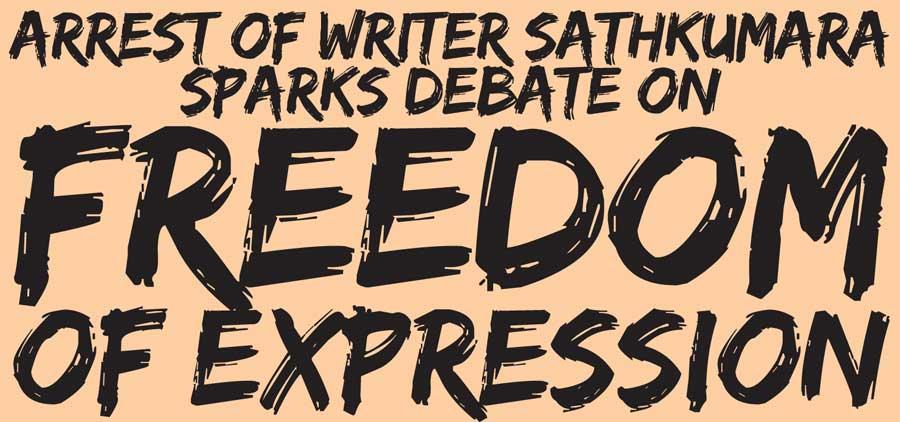
 n April 1, award-winning author and poet Shakthika Sathkumara was arrested and remanded on contrived charges of inciting religious hatred, a move that has been decried by artists, academics and free-speech advocates as setting a dangerous precedent against the freedom of expression.
n April 1, award-winning author and poet Shakthika Sathkumara was arrested and remanded on contrived charges of inciting religious hatred, a move that has been decried by artists, academics and free-speech advocates as setting a dangerous precedent against the freedom of expression.
Mr. Sathkumara, a 33-year-old father of two, and Development Officer at the Nikawaratiya Divisional Secretariat, was arrested by the Polgahawela Police on a complaint filed by a group of monks of the Buddhist Information Centre led by the Ven. Angulugalle Siri Jinananda Thero. On February 25, this group had written to the Inspector General of Police (IGP), charging that the short story ‘Ardha’ (Half), penned by Mr. Sathkumara and posted on Facebook, was derogatory and defamatory to Buddhism, and had insulted the life of the Buddha and the Maha Sangha. Prior to this, the same group had complained against director Malaka Dewapriya for his radio drama series ‘Kanata Parak’.
Mr. Sathkumara was initially remanded by the Polgahawela Magistrate’s Court until April 9, and was remanded for a further fourteen days until April 23 when the case was taken up a second time, despite appeals for bail from his lawyers. He was charged under the International Covenant on Civil and Political Rights (ICCPR) Act of 2007, and Section 291 of the Penal Code. The ICCPR Act criminalises the advocacy of “national, racial or religious hatred that constitutes incitement to discrimination, hostility or violence”. This provision replicates Article 20 of the ICCPR, which Sri Lanka ratified in 2007 with the aim of upholding and expanding international human rights standards. 
Mr. Sathkumara’s lawyers argued that while the magistrate does not have powers to grant bail under the ICCPR Act, bail could be given under the Penal Code. However the police opposed bail on grounds that investigations were not yet complete.
Counsel Sarath Dassanayake appearing for the Buddhist monks submitted that the short story posted on the writer’s Facebook wall had included a semi-nude image and was intended to offend the public sentiments of Buddhists in respect to the Buddha’s lay life. He added that although the Constitution granted the freedom of expression, there were limitations to it.
In response, lawyer S.T. Jayanaga PC, appearing for the writer, quoted from Martin Wickramasinghe’s 1973 book ‘Bhava Tharanaya’ to show examples of literature written differently to the dominant narrative of the life of Siddhartha, before he attained Buddhahood. Mr. Jayanaga added that the police had failed to submit to court all material pertaining to the case, including the short story in question. He then submitted to court the text of the story, while stressing that reading its contents would reveal that it does not insult the Buddhist doctrine of beliefs.
The move to arrest and remand a writer for his work has sparked concern and condemnation from groups of artists and academics, and re-opened the debate on freedom of expression. Here is what some of them had to say:
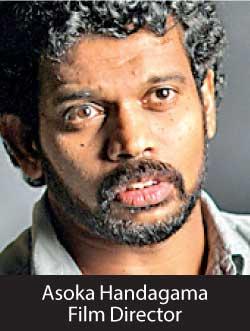 Freedom of expression has gone for a six
Freedom of expression has gone for a six 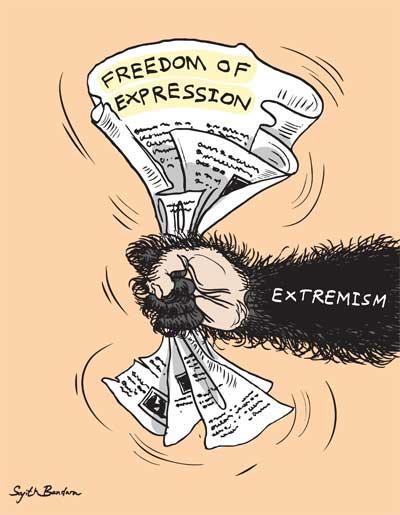
With the government failing in a number of aspects of good governance, our only hope was that at least freedom of expression would prevail. That too has gone for a six now.
In the case of writer Shakthika Sathkumara, the ICCPR Act has no provision to limit someone’s right to freedom of expression. Instead it should protect a person’s basic human rights. A group of Sangha claiming to “protect Buddhism” is behind this arrest.
The second case is the blocking of a shoot of TV reality show ‘Asia Express’ in Kandy, alleging that a gay marriage was being shot. Sri Lanka has been chosen by Echoline, a Belgium TV production company with a global reach, to promote our tourist destinations, natural beauty, hospitality and culture. They have shot a series of programmes promoting Sri Lanka as a global tourist destination. Paying for such a promotion would cost billions. The minister in charge of the National Film Corporation, Sajith Premadasa, reacting to media reports, banned the shoot without even listening to the production party. It is reported that ‘Mahason Balakaya’ was behind this. If the values of the country’s art and culture are determined by these types of groups, what kind of place are we living in? Shouldn’t we protest?
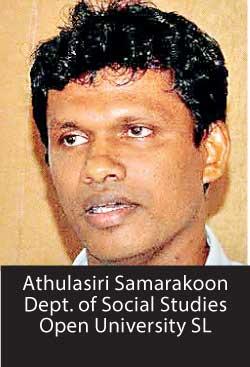 Sri Lanka is not governed by clergymen, but by a democratic Constitution
Sri Lanka is not governed by clergymen, but by a democratic ConstitutionWe who respect democracy must condemn the arrest of Shakthika Sathkumara and demand his unconditional and immediate release from remand custody. Shakthika is an artist who uses his imagination and creativity to address social issues and he has dealt with a very critical social issue in this short story.
Article 20.2 of the ICCPR Act prohibits “any advocacy of national, racial or religious hatred that constitutes incitement to discrimination, hostility or violence’’. Such charges cannot be framed against this writer because his writing has nothing to do with discrimination or inciting religious fundamentalism. In fact, the same law can be used to defend Shakthika’s rights, as Article19.1 stipulates that “Everyone shall have the right to hold opinions without interference”.
Sri Lanka is not governed by a set of clergymen or a supreme religious leader, but by a democratic Constitution. We are a secular country. The Fundamental Rights chapter of the Constitution guarantees citizens the freedom of expression. Therefore, no one can make false charges against others or erroneously utilize provisions of international law. I hope the courts will understand the gravity of this case and release Shakthika immediately and clear him of all charges. If not we must fight against this unlawful situation and stand for true freedom of expression.
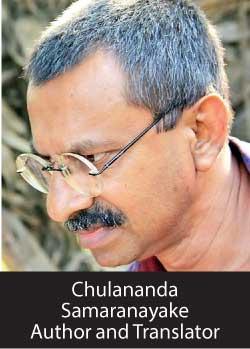 The artistic community must show their solidarity with Sathkumara
The artistic community must show their solidarity with Sathkumara All artists must have the absolute right to freely express themselves through their work. No religious or social group, or any organisation for that matter, has the right to obstruct or undermine the freedom of expression of an artist.
The appropriate response to a work of art must emerge through artistic reviews and criticisms, and not by punishing the artist. Penalizing an artist for their work is characteristic of an undeveloped society.
The artistic community must show their solidarity with writer Shakthika Sathkumara and rally together to oppose the unethical and anti-cultural action taken against him.
 Would Martin Wickramasinghe have been arrested for ‘Bhava Tharanaya’?
Would Martin Wickramasinghe have been arrested for ‘Bhava Tharanaya’?The ICCPR is a covenant of freedom and it should ensure the protection of civil and political rights. This freedom is limited under certain circumstances, like war or in cases of national security and public order. In addition to those general limitations, article 20 (2) states: “Any advocacy of national, racial or religious hatred that constitutes incitement to discrimination, hostility or violence shall be prohibited by law”.
Sathkumara’s short story cannot be cited as inciting religious hatred. We witnessed that kind of hatred in Beruwala in 2014 and Digana last year. Furthermore, article 19 (2) states, “Everyone shall have the right to freedom of expression; this right shall include freedom to seek, receive and impart information and ideas of all kinds, regardless of frontiers, either orally, in writing or in print, in the form of art, or through any other media of his choice”
Therefore the police decision to bring this charge under the ICCPR is totally unwarranted, and an attempt to abuse a mechanism of rights and freedoms to subvert its very purpose, solely for the vengeful intention of harassing a writer and an artiste, because it is only under this that they can keep him remanded for a longer period since the magistrate cannot grant bail.
This is a very dangerous situation where anyone can make a baseless allegation to suppress free expression, especially in art works. If Martin Wickramasinghe had been alive, would he have been placed under custody for ‘Bhava Tharanaya’? And even Hermann Hesse wouldn’t have been spared for the ‘crime’ of writing ‘Siddhartha’.
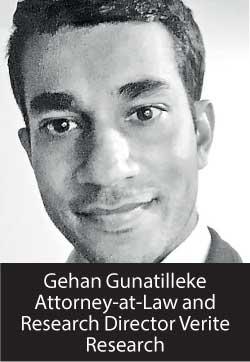 Criminal law has no place in this dispute
Criminal law has no place in this disputeIt is reported that Sathkumara’s writing brings the Buddhist clergy into disrepute. If this is true, the Buddhist clergy, and others, are entitled to criticise Sathkumara. That is part of their freedom of expression. However, criminal law has no place in this dispute. Criminal law should not protect feelings. So the Penal Code offence on “wounding religious feelings” is clearly archaic and unjustified. Criminal law is supposed to protect citizens from genuine harm to their physical well-being or property. For example, it should protect those who are harmed because a person incites violence. This is the primary aim of the ICCPR Act. But it is tragic that the Act has not been used to convict those who have actually incited violence against religious groups.
This incident demonstrates a weakness in the legal regime designed to protect citizens. The ICCPR Act, despite being a perfect replication of international standards, can be abused if the state wishes to take the side of the majority and target a person with unpopular views. So the problem is not with the text of the law, the problem is in its selective application to suit the will of the majority.
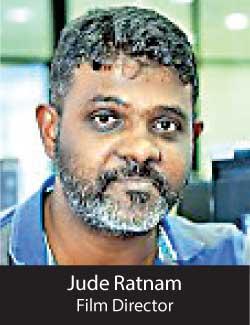 It is ironic that Sathkumara is called a heretic for attempting to see things as they are
It is ironic that Sathkumara is called a heretic for attempting to see things as they are“To see things as they are” is the purpose of art and even more so of philosophy. To deny what you see is to deny the path to truth itself. It is ironic that Shakthika Sathkumara is called a heretic for attempting “to see things as they are” in a philosophy that teaches you the doctrine of Dhukka and invites the individual to “come and see” for oneself. The heretic and the traitor are the inverted products of a society that indulges itself in hypocrisy.
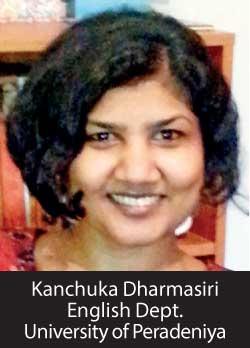 This is a dangerous turn of events
This is a dangerous turn of eventsJayathilaka Kammallaweera makes a significant observation in the letter he writes in response to Shakthika Sathkumara’s arrest over writing a short story that allegedly insults Buddhism. Kammallaweera recalls his own experience of writing a novel which questioned certain aspects of institutional Buddhism, and recalls how the book even got positive reviews. In fact, when one examines Sinhala literature in general, one notices that sex, sexuality and religion were subjects that were discussed often and quite openly.
In the past decade, however, the cultural context of Sri Lanka, and in the world for that matter, has transformed in a rather negative way with fundamentalist religious groups and far right organizations assuming the role of a repressive cultural police. In Sri Lanka, there have been several cases where fundamentalist groups have aggressively, and even violently, assumed the position of the guardians of culture and morality; they have demanded the censorship of certain works of art. In Sathkumara’s case, the group has even demanded his arrest. This is a dangerous turn of events. When the state, military organizations and/or religious institutions assume authoritarian positions on art and culture, that denotes the tragic fate of the artist and creativity. We should all stand against this type of censorship and violence against creative expression.
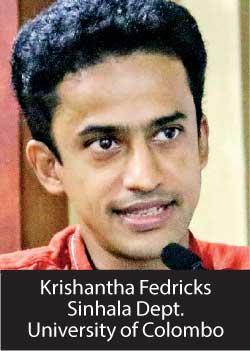 To discredit a work on these grounds is to discredit the entire Sinhala literary tradition
To discredit a work on these grounds is to discredit the entire Sinhala literary traditionIt is a unfortunate to see how fragments of Buddhist clergy, who for centuries have upheld a diverse literary tradition, are now threatening their own cosmopolitan view on literature by pushing the state to forcefully challenge the freedom of creativity.
Since the beginning of the Sinhala literary tradition in the Anuradhapura period, texts like the ‘Mul Sikha’ and ‘Sikha Walanda Winisa’ have served as disciplinary manuals for monks, and are considered part of Sinhala classical literature. They demonstrate the region’s fluid gender identities before colonialism imposed “western” binary categories, and are evidence of a “liberal” literary ethos that both writers and audience adhered to.
Even though any relationship that evokes lust, prejudice or attachment is against Buddhist teachings or the monastic code, such relationships have been at the core of literary content. So to discredit a work on these grounds is to discredit the entire Sinhala literary tradition.
The Buddha said no one insults you as long as you do not take any one else’s words, actions or emotions as insults. We need a Buddhist practice and activism based on unconditional metta, karuna and upekha, not on the misinterpretations of the ICCPR Act.
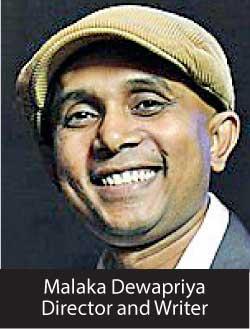 A civilized society cannot suppress, censor or ban artistic expressions
A civilized society cannot suppress, censor or ban artistic expressionsThroughout history, tales of fiction and legend have been integral to the development of artistic expression. Language is a sign system, and writers have used literary devices such as irony, metaphor, satire, sarcasm and allusion in their creative expressions through language.
A civilized society cannot suppress, censor or ban artistic expressions. In feudal times Lords and Kings suppressed people’s freedoms. But today artists should not need the approval of anyone, including temples, churches, the police or politicians to engage in their work as in the middle ages. Writings related to Buddhism, Christianity, Hinduism and Islam are also works of literature, that were developed by writers. This is why such works are subject to so much interpretation.
Artists must have the freedom to critique various subjects, including religion. It is a fallacy to imagine that such freedoms can be curtailed by law. Therefore we must stress that no restrictions can be placed on artistic expressions.
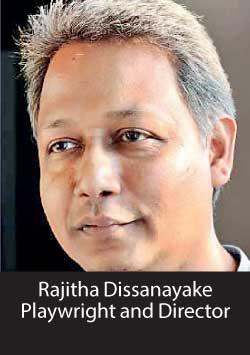 The police or courts cannot judge or value art
The police or courts cannot judge or value artArtistic creations are based on characters and incidents, and they fulfil an important function by questioning the different roles played by groups and individuals in society.
Therefore it is a serious issue when a work of art which questions the role of the clergy is portrayed as being harmful to religion, and court orders are obtained against the artist.
At present, the violent behaviour and hostile speech of certain monks and politicians is openly displayed to the public. Some even have sexual abuse charges against them. Why then is an artistic work that discusses these issues silenced? The law cannot be used to cover-up such wrongdoings on charges that religion is being harmed.
Also, a work of art doesn’t assume greatness simply because it questions the clergy. Its value is decided by how audiences and critics respond to it over a period of time.
The police or courts cannot judge or value art. If they do, that is a serious issue. In such cases, there’s more public interest in the work when it is restricted by the law. Even I read the short story in question after I heard the writer was remanded. Likewise a large amount of people read it because the writer was remanded.
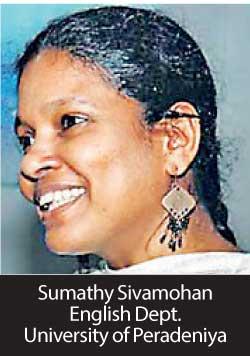 Cultural policing is a silencing of the marginalized
Cultural policing is a silencing of the marginalizedIt is very disturbing that an Act like the ICCPR that supposedly protects people, ordinary individuals, who have no state or other forms of backing, turns against them.
I don’t know too much about the procedure that was followed in the arrest of Shakthika Sathkumara, and therefore will not comment on it, but we as a polity need to question the premises of the arrest.
Last year, we saw cases filed against Malaka Dewapriya’s radio plays, for absolutely no reason. This trend is catching on, and if we do not speak out now, we will never be able to. The law is there to protect people, not to take away their sense of being, and the little power they have within the system. The story by Sathkumara is a portrayal of a young person’s trauma and desires, very much located within that psychology. How does it become an incitement to hate and rioting? We cannot have “cultural police” placing the ordinary actions of people under surveillance. Cultural policing is a silencing of the marginalized, victims and the powerless. We must speak out now.
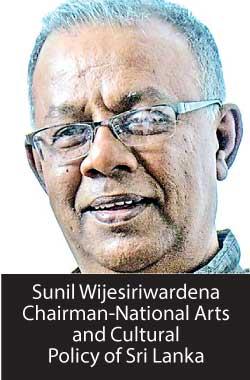 The Buddhist way is to offer criticism and to review when you disagree with an idea
The Buddhist way is to offer criticism and to review when you disagree with an ideaA basic criterion of a developed society is tolerance and respect for diversity. In such a society collective well-being is not endangered. So the idea of respect and tolerance is inbuilt in this society.
Buddhism is based on a tradition of critical thinking. Gauthama Buddha was critical of various ideas, and the society of his time was tolerant of these views. The Buddha never went to any authority or king to resolve any difference on his behalf. He was a practitioner of non-violence.
Most importantly, the Buddha’s life was his lesson. There was no gap in what he preached and how he lived. Our present ideas of Buddhism and tradition contradict these values.
In this case, the writer may have hurt someone. The Buddha’s ideas also might have hurt some people of his time. Anyone is allowed to express new ideas. But the present Buddhist order has such a power, that when legal tools are used, they can put someone behind bars. This is not the Buddhist way. The Buddhist way is to offer criticism and to review, when you disagree with an idea.
This is a very dangerous precedent akin to the Taliban system. Any person, including Shakthika, has a right to express and criticize, and state power cannot be used to block this right. If it is an idea, inferior to yours, you may offer criticism and perhaps come up with a new idea. As a Buddhist, it saddens me, especially because I absolutely oppose censorship.